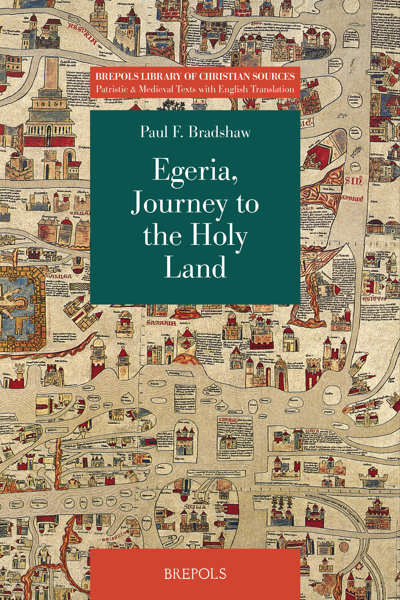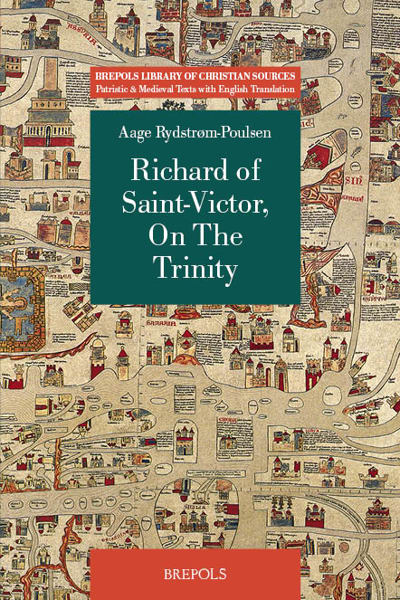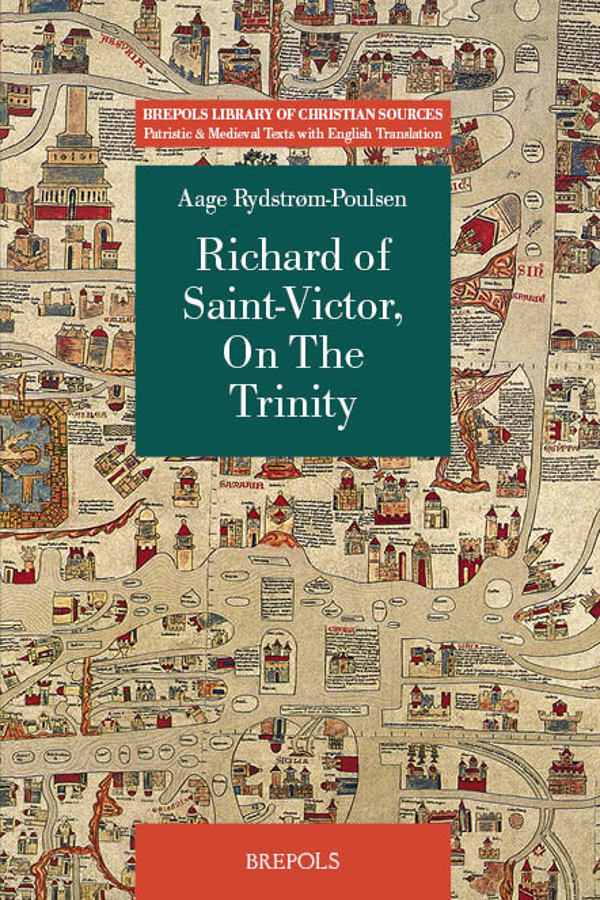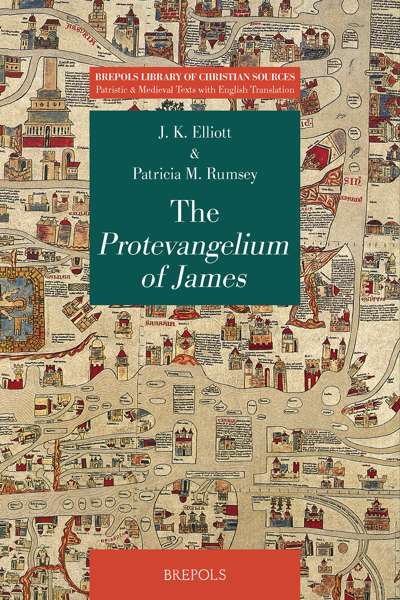
- Pages: 304 p.
- Size:156 x 234 mm
- Language(s):English, Latin
- Publication Year:2021
- € 55,00 EXCL. VAT RETAIL PRICE
- ISBN: 978-2-503-59412-5
- Paperback
- Available
- € 55,00 EXCL. VAT RETAIL PRICE
- ISBN: 978-2-503-59413-2
- E-book
- Available
"La editorial Brepols continua en su loable empeño de dar a conocer fuentes clásicas del pensamiento antiguo y medieval, no sólo mediante la edición de textos críticos en el Corpus Christianorum, sino también mediante la promoción de colecciones de textos bilingües como el que ahore presentamos. (…) En ella aparece publicado en 2021 uno de los textos más importantes del pensamiento del siglo XII: el De Trinitate de Ricardo de san Víctor. (…) A la introducción le sigue el texto (…) que se presenta de acuerdo con la edición crítica publicada en 1958 por Jean Ribailler, seguido, en páginas enfrentadas, de la traducción del propio Rydstrøm-Poulsen." (Fr. Luis Javier García-Lomas Gago, OSB, in Isidorianum 32/1, 2023, p. 228-231)
"Victorine studies is currently experiencing something of a renaissance, with Brepols publishers serving as a leader in this regard. Their Bibliotheca Victorina series contributes specialized studies in various European languages, and the Victorine Texts in Translation series provides Victorine writings in English. Taken together, these series have yielded an embarrassment of riches for contemporary students of the abbey of Saint Victor. The two books discussed in this review are crucial elements for Victorine studies and both are most welcome additions to Brepols’ growing Victorine library." (Dennis P. Bray, in Medieval Mystical Theology, 2022)
« (…) l’ouvrage d’Aage Rydstrøm-Poulsen remplit bien son rôle, qui est d’inviter un public plus large que les seuls spécialistes à entrer dans le chef d’œuvre théologique de Richard de St-Victor, quitte à en poursuivre l’exploration par la prise en compte des études en nombre croissant qui paraissent à son sujet. » (Dominique Poirel, dans la Revue d'Histoire ecclésiastique vol. 117/1-2, 2022, p. 349)
"La obra de Ricardo de san Víctor es sin duda un clásico de la teología medieval (…) Pero al mismo tiempo estos textos no pueden desecharse come puramente teológicos (…). Se puede extraer de la obra de Ricardo (y la introducción a esta edición que recensionamos es buena prueba de ello) indicaciones para construir una antropología y una epistemología, y haste une teoría social basada en la idea de la reconciliación con el otro. La fecundidad filosófica del siglo XII es un camino todavía abierto y pendiente de seria exploración. Esta edición del De Trinitate, tanto por la limpidez de la traducción como por la sustanciosa introducción, puede contribuir a ello con creces." (Fr. Luis Javier García-Lomas Gago, OSB, in Isidorianum 32/1, 2023, p. 228-231)
“In conclusion, Rydstrøm-Poulsen’s new edition of De Trinitate provides an excellent opportunity to introduce Richard of St. Victor’s work to newcomers in Victorine studies. It approaches the Trinitarian theme from a complementary and distinct perspective compared to Angelici, in light of what was known as affective theology in the last century. Now that De Trinitate is readily accessible to a broad scholarly community, we can hope that scholars will use this volume as a model for investigating the many texts written within the walls of the Abbey of St. Victor, texts that have been buried under thick layers of dust over the centuries.” (Antonio Sordillo, in SPECULUM, 99/2, 2024, p. 629-630)
Aage Rydstrøm-Poulsen is MTh University of Aarhus 1978, PhD University of Copenhagen 1993, Visiting Scholar at Western Michigan University 1993 and 1995-98, and Dr.Theol. University of Copenhagen 2002 with a dissertation on The Gracious God. 'Gratia' in Augustine and the Twelfth Century (Akademisk Forlag 2002). He has published on the medieval history of theology. Since 2004 he is the chair of the Department of Theology at the University of Greenland, in 2008 president of the University, since 2018 dean of the Institute of Culture, Language, and History.
Richard of Saint-Victor’s On The Trinity from the 12th century is a main source for our understanding of a leading intellectual tradition of the Western world in which love was regarded the highest and the best in the human world and therefore also was the reality in which the highest and the best, God, was to be seen. Richard understands human love as interpersonal so that love must be realized between two persons, but for being the highest love that excludes any private and selfish love, both loving persons must share their love with a third person.
Acknowledgements
Abbreviations
Introduction
1. Richard of Saint-Victor and the 12th Century
a. The Augustinian Tradition
b. Human Love
c. Richard’s Influence
2. Richard and Saint-Victor
a. The Abbey
b. Monastery and School
c. Internationalism
d. The Death of Richard
3. The Theological Method
a. Faith and Reason
b. Reason and Experience
c. The Augustinian-Anselmian Tradition
d. The Necessary Reasons
e. Reason and Mysticism
4. Love and Trinity
a. Love and the Highest Love
b. Caritas ordinata and amor discretus
c. Condilectio
d. Unity and Plurality in Love
e. Anthropomorphism?
Richard of Saint-Victor, De Trinitate / On The Trinity
Latin Text and English Translation side by side.
Bibliography
Index of Names




